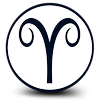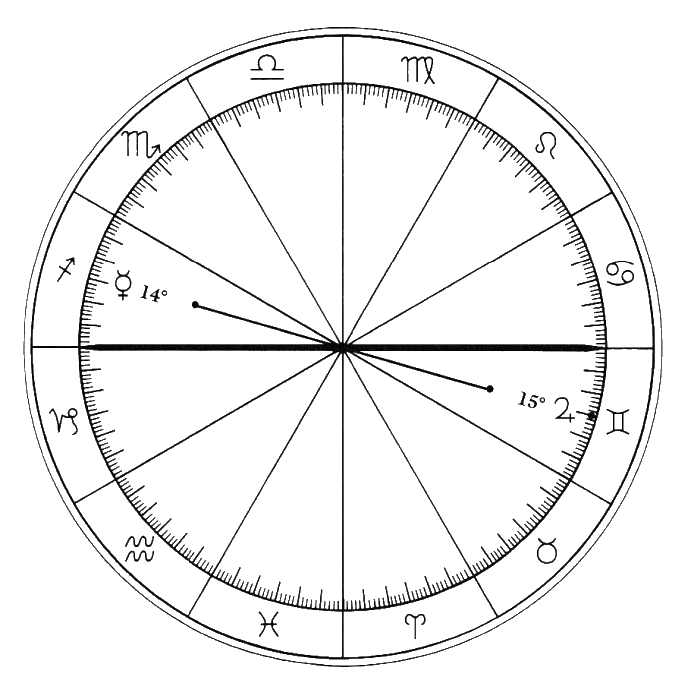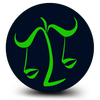The classic planetary rulerships form fundamental components of interpreting astrological charts. Initially designated by ancient astronomers and astrologers, these rulerships have persisted over time. Yet, since the 1700s, astrologers have faced the challenge of accommodating the newly identified planets within the solar system. Integrating them into the established system involves assigning rulerships based on various criteria, such as the prevailing world events during each planet’s discovery.
Planetary Traditions
The table presented below outlines instances where planets are personalized, thereby enhancing their influence, along with their associated ruling signs and other traditional relationships with those signs.
|
PLANET
|
WHEN PERSONALIZED
|
DOUBLY POWERFUL
|
INCREASED IN STRENGTH
|
RULES
|
EXALTED
|
DETRIMENT
|
FALL
|
|---|---|---|---|---|---|---|---|

|
Always personal
|
If ☌ Asc from 1st or 12th House; If ☉ and Asc are the same sign; even more powerful if ☉ Asc are ♌︎
|
☉ in ♌︎ (greatly); ☉ in 5th
|

|

|

|

|

|
Always personal
|
If Asc is ♋︎; ☾ ☌ Asc from 1st or 12th; If ☉ ☌ ☾ in ♋︎
|
☉ in ♋︎; ☾ in ♋︎; ☾ in 4th House
|

|

|

|

|

|
If ☉ ☾ Asc = ♊︎ or ♍︎
|
If ♊︎ or ♍︎ Asc & ☿ ☌ Asc from 1st or 12th
|
☿ in ♊︎ or ♍︎; ☿ in 3rd or 6th
|
♊︎ ♍︎
|

|

|

|

|
If ☉ ☾ Asc = ♉︎ or ♎︎
|
If ♉︎ or ♎︎ Asc and ♀ ☌ Asc from 1st or 12th
|
♀ in ♉︎ or ♎︎; ♀ 2nd or 7th
|
♉︎ ♎︎
|

|

|

|

|
If ☉ ☾ Asc = ♈︎
|
If ♈︎ is Asc and ♂ ☌ Asc from 1st (especially strong) or 12th House (less so)
|
♂ in ♈︎ (considerably); ♂ in 1st House
|
♈︎* ♏︎
|

|

|

|

|
If ☉ ☾ Asc = ♐︎
|
If ♐︎ is Asc and ♃ ☌ Asc from 1st or 12th (especially strong)
|
♃ in ♐︎; ♃ in 9th; ♃ in ♓︎ (somewhat)
|
♐︎** ♓︎
|

|

|

|

|
If ☉ ☾ Asc = ♑︎
|
If ♑︎ is Asc and ♄ ☌ Asc from 1st or 12th
|
♄ in ♑︎; ♄ in 10th; ♄ ☌ MC; ♄ in ♒︎ (somewhat)
|
♑︎*** ♒︎
|

|

|

|

|
If ☉ ☾ Asc = ♒︎
|
If ♒︎ is Asc and ♅ ☌ Asc from 1st or 12th House; (births 1912-19 approx)
|
♅ in ♒︎; ♅ in 11th House
|

|

|

|

|

|
If ☉ ☾ Asc = ♓︎
|
There is no one alive with ♆ in ♓︎
|
♆ in ♓︎ (after AD 2012); ♆ in 12th
|

|

|

|

|

|
If ☉ ☾ Asc = ♏︎
|
If ♏︎ is Asc and ♇ ☌ Asc from 1st or 12th
|
♇ in ♏︎ (those born 1984-95); ♇ in 8th
|

|

|

|

|
*Before Pluto was discovered, Mars also ruled Scorpio
**Before Neptune was discovered, Jupiter also ruled Pisces
***Before Uranus was discovered, Saturn also ruled Aquarius
Personal Planets
The personal planets are as follows:
- the sun
- the moon
- the planet ruling the Ascendant sign (Chart Ruler)
- the planet ruling the Sun Sign (Sun Ruler)
- the planet ruling the sign occupied by the Moon (Moon Ruler)
MUTUAL RECEPTION
Mutual reception occurs when Planet A is in a sign that is ruled by Planet B, and Planet B is in a sign that is ruled by Planet A. So, the Moon may be in Scorpio and Pluto in Cancer, or – as here – Mercury in Sagittarius and Jupiter in Gemini (or Virgo). The planets involved are in harmony and, if they also make aspect to each other, the strength of that aspect is slightly increased. Should the aspect be a square, opposition or minor, negative aspect, any tension indicated will be mitigated, since the planets will strengthen the psychological integration of the subject. If both are personal planets, the relationship between them will be more important.

Traditional Relationships
Each planet governs one or two signs, with these rulerships established in ancient times. Additionally, each planet is exalted in a specific sign where it functions optimally and resonates with its characteristics. When a planet occupies its exalted sign, its significance in interpretation is slightly heightened.
Every planet has a sign of detriment, which is the zodiac sign opposite the one it rules (its Polar Sign). According to traditional astrology, the planet operates less effectively when placed in this sign.
Every planet also has a fall sign, located directly across the zodiac from its exalted sign (again, its Polar Sign). In this placement, the planet is believed to function less effectively. Similar to signs of detriment, this is an important consideration when interpreting a chart.
|
SIGN
|
GLYPH
|
WHAT IT REPRESENTS
|
|---|---|---|
|
Aries ♈︎
|

|
The Ram's Head
|
|
Taurus ♉︎
|

|
The Bull's Head
|
|
Gemini ♊︎
|

|
The Twins
|
|
Cancer ♋︎
|

|
Breasts
|
|
Leo ♌︎
|

|
The Lion's Tail
|
|
Virgo ♍︎
|

|
Female Genitals
|
|
Libra ♎︎
|

|
A Pair of Scales
|
|
Scorpio ♏︎
|

|
Male Genitals
|
|
Sagittarius ♐︎
|

|
The Centaur's Arrow
|
|
Capricorn ♑︎
|

|
The Goat's Head & Fish' Tail
|
|
Aquarius ♒︎
|

|
Water, Air Waves - The Ether
|
|
Pisces ♓︎
|

|
Two Fish
|
|
PLANET
|
GLYPH
|
|
RULERSHIP
|
|
|
|---|---|---|---|---|---|
|
Sun ☉
|

|
|

|
|
Leo
|
|
Moon ☾
|

|
|

|
|
Cancer
|
|
Mercury ☿
|

|
|

|

|
Gemini, Virgo
|
|
Venus ♀
|

|
|

|

|
Taurus, Libra
|
|
Mars ♂
|

|
|

|
|
Aries
|
|
Jupiter ♃
|

|
|

|
|
Sagittarius
|
|
Saturn ♄
|

|
|

|
|
Capricorn
|
|
Uranus ♅ ⛢
|

|
|

|
|
Aquarius
|
|
Neptune ♆
|

|
|

|
|
Pisces
|
|
Pluto ♇
|

|
|

|
|
Scorpio
|
|
Chiron ⚷
|

|
|
???
|
|
Perhaps Virgo
|
|
|
|
The alternative glyph for Pluto is sometimes used
|
|---|
The modern planets
Following the discovery of the modern planets – Uranus in 1781, Neptune in 1846, and Pluto in 1930 – there has been considerable debate regarding the assignment of their rulerships and the signs where they might be exalted or in detriment.
The signs of rulership, and consequently detriment, have been extensively discussed and established, except for the planets Pluto and Chiron (discovered in 1977). As indicated in the table above, Uranus governs Aquarius, hence its detriment is in Leo. Neptune governs Pisces, thus its detriment lies in Virgo. Pluto governs Scorpio, thus its detriment resides in Taurus. Determining the signs of exaltation poses more challenges. Many astrologers suggest that Uranus is exalted in Scorpio (with its fall sign being Taurus), and Neptune is exalted in Leo (with its fall sign being Aquarius).
Placing Pluto and Chiron
The placement of Pluto has sparked extensive debate, with Virgo emerging as a significant contender. During its time in that sign, especially during its conjunction with Uranus in the 1960s, Pluto’s influence was particularly prominent. The investigative nature of Pluto aligns well with the analytical and research-oriented qualities of Virgo. Consequently, many believe it is reasonable to associate Pluto with Virgo, despite Mercury already being exalted in that sign (its own sign). Accordingly, Pluto’s fall sign is then considered to be Pisces (the polar sign of Virgo). As for Chiron, its placement remains undetermined.
















































